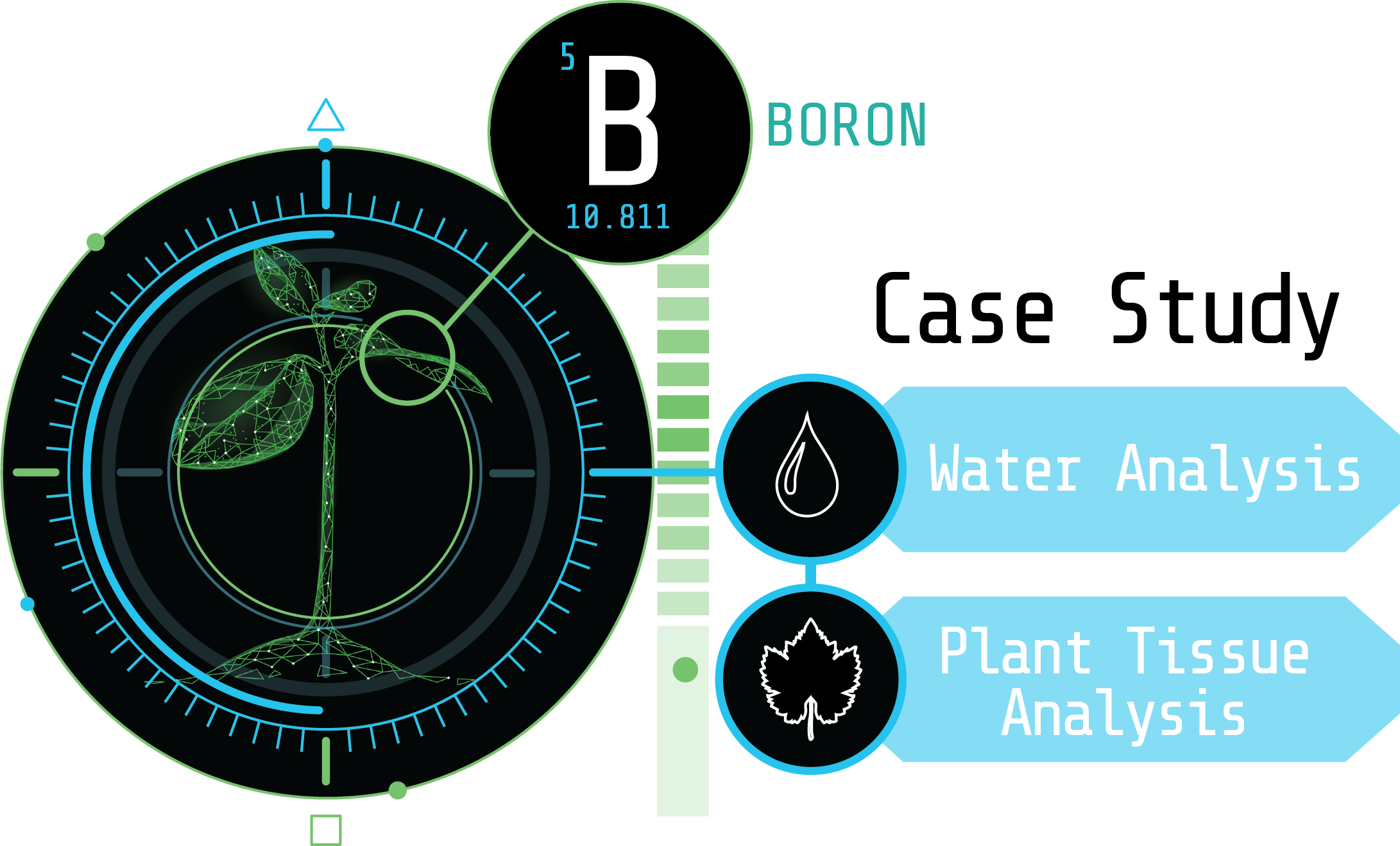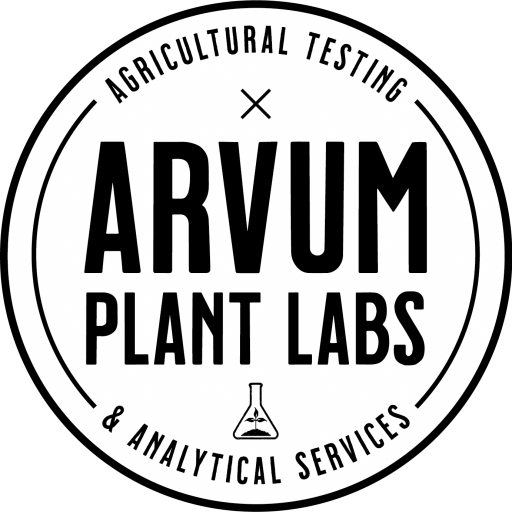Case Study: A Common Culprit to Excessive Boron in Cannabis Cultivation

The Situation:
In December 2023 a Northern California indoor cultivator contacted us about some concerns that they had with their plants. After a round of plant tissue and water tests we quickly identified excessive levels of Boron, a micronutrient that is essential for optimal plant performance, but in high concentrations can be detrimental to plant health and performance. Read our previous blog about the effects of excessive and deficient boron in your plants.
Here’s a more extensive breakdown of our approach, our treatment recommendations, and the ultimate results.
Approach:
We approached this problem by integrating two key testing methods: Reverse Osmosis (RO) water testing and leaf tissue analysis.
- RO Water Test (Initial): On December 27, 2023, we analyzed primary analytes such as pH, Electroconductivity (EC), Total Dissolved Solids (TDS), and micronutrients, including Boron. The results showed concerning levels of TDS and Boron, which was indicative of a potential issue with the water filtration system.

- Leaf Tissue Analysis: Along with water testing, we examined the nutrient levels of the plant with leaf tissue analysis. We found excessive levels of Boron in the plant, which indicated that the RO filtration system was not operating at 100% and was allowing Boron to leach through the system and into the plant.

Taking Action:
We recommended that the cultivator have their RO filtration system serviced by a knowledgeable technician as soon as possible. We made a plan to retest the water and the plant tissue after the maintenance was done.
Results
Following the maintenance on the water filtration system we retested the water from the RO system on February 1, 2024. These test results showed no Total Dissolved Solids (TDS) and the Boron levels were well within a normal range that you would expect with RO water.

On February 21st we retested the plant tissue and found the Boron levels to be back within the optimal range for cannabis.

The repair of the RO water filtration system had a direct and positive impact on the water quality. This was evidenced by the improved readings in the post-repair water test, aligning with the optimal requirements for cannabis cultivation. The subsequent decrease in boron levels in the plant tissue confirmed our suspicion that an underperforming water filtration system was the culprit as to why the Boron levels in the plants were high.
Key Takeaways
- Integrated Testing Approach: The use of both RO water tests and plant tissue analysis is crucial in identifying and addressing issues in plant cultivation environments where RO filtration is used.
Proper Maintenance of RO Filtration Systems: This case also underscores the critical importance of regular and proper maintenance of RO water filtration systems in agricultural settings. In this instance, the lack of maintenance led to the malfunctioning of the RO system, which in turn caused excessive boron levels in the water and subsequently in the plant tissue. Regular checks and timely maintenance of the filtration systems are crucial in preventing such nutrient imbalances, ensuring the optimal growth environment for crops, and averting potential issues that can impact plant health and yield.
Finishing Up
This case study exemplifies the importance of comprehensive testing and the synergy between water quality and plant tissue analysis in maintaining optimal growing conditions. At Arvum Plant Labs, we remain committed to employing scientific methods to enhance plant health and cultivation practices
Are you having issues with plant performance but not sure of the cause? Do you want to make sure that there is nothing going on that you can’t see yet that could cause issues in the future? We can help you quickly diagnose issues and potential issues from an objective, scientific perspective. Arvum Plant Labs offers all new customers a free round of water and plant tissue testing to help make sure that your plants are growing optimally.
Call us at 707-398-8346 or email us at sales@arvumplantlabs.com to claim your free round of testing.








